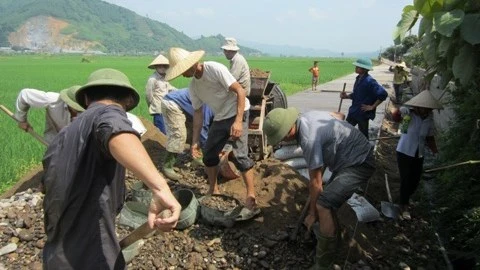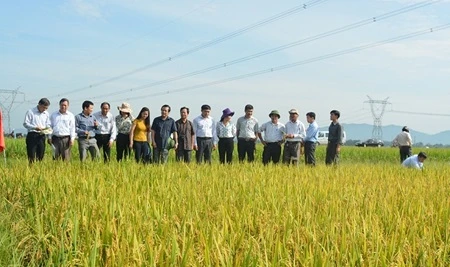Hanoi (VNA) – The Japanese International Cooperation Agency (JICA) has worked with several Vietnamese partners to develop the value chain in agriculture production, said JICA Vietnam Chief Representative Mori Mutsuya at a press briefing on December 16 in Hanoi.
The partners included the Ministry of Agriculture and Rural Development, the authorities of Lam Dong, Nghe An and Ha Nam provinces and those in the private sector.
Several pilot projects are being carried out in the three provinces, and if success, the models will be multiplied in other localities.
Yamamoto Satoshi from JICA urged the MARD to keep a close monitoring of the projects while the targeted localities should identify any problems that they cannot solve by themselves and reported to JICA for support.
According to the JICA Vietnam Chief Representative, a survey conducted by JICA in Lam Dong showed local farmers’ income is only one ninth that of their Malaysian counterparts, adding that their income can rise nine times just by switching to growing flowers instead of coffee trees.
He noted that however, in order to realise the potential, the Vietnamese Government must address outstanding problems. According to him, Vietnam’s agricultural development is hindered by difficulties in accessing capital, a shortage of applicable technologies and a lack of information on consumers.
Mori said more and more Japanese enterprises have their eye on the Vietnamese market after the establishment of the long- and medium-term vision on Vietnam-Japan agricultural cooperation.
JICA will cooperate with the University of Can Tho on human resource training to supply quality manpower for the agricultural sector in the Mekong Delta. The agency also plans to cooperate with the Vietnam Academy of Agriculture in studying rice varieties and post-harvest preservation.
The agency will also boost the application of the information and communication technology (ICT) in agricultural production, with a trial project to be implemented in Ha Nam.-VNA






















